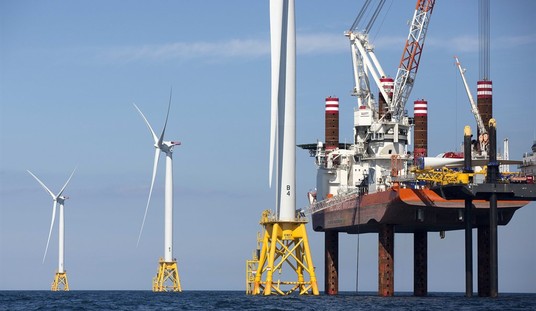Can Donald Trump manipulate Russia into a containment strategy against Xi Jinping? That’s the theory floated last night by the Daily Beast, one that addresses some of the questions in Trump’s inexplicable eagerness to befriend Vladimir Putin. The project, if it exists at all, started with the man best known for using China to contain Russia:
Henry Kissinger suggested to President Donald Trump that the United States should work with Russia to contain a rising China.
The former secretary of state—who famously engineered the tactic of establishing diplomatic relations with China in order to isolate the Soviet Union—pitched almost the inverse of that idea to Trump during a series of private meetings during the presidential transition, five people familiar with the matter told The Daily Beast. The potential strategy would use closer relations with Russia, along with other countries in the region, to box in China’s growing power and influence.
Kissinger also pitched the idea to Jared Kushner, the top White House adviser whose portfolio includes foreign-policy matters, one of the sources briefed on the discussions said.
Inside the administration, the proposal has found receptive ears, with some of Trump’s top advisers—in addition to officials in the State Department, Pentagon, and the National Security Council—also floating a strategy of using closer relations with Moscow to contain Beijing, according to White House and Capitol Hill insiders. But the idea has been complicated by the president’s deference to Russian President Vladimir Putin, which has caused countless domestic political headaches.
Some at the White House explicitly use the Richard Nixon precedent:
One former Trump administration official referred to Trump’s posture toward Putin during the Helsinki summit earlier this month as “the reverse of the Nixon-China play.” “Russia and China are cozying up to each other and it’s a lethal combination if they’re together,” said the former official, who was familiar with the strategizing behind the summit.
Such a strategy would explain Trump’s dogged determination to befriend the man whose intelligence agency conducted hostile operations against the US in the last election. Despite publicly scolding our NATO allies for not spending enough on common defense — calculated against Russia, the only major military threat for Europe — Trump then went on to describe Russia as a “good competitor” rather than an opponent or enemy. He spent so much time praising Putin and defending him against accusations of hostile operations that the backlash at home forced Trump to retreat repeatedly when he returned.
However, this doesn’t really explain the broader strokes of Trump’s policies, either. If Trump wanted to conduct an encirclement strategy on China, why let ZTE off the hook? Why praise Xi repeatedly? On a more substantive level, why bail out of the TPP entirely, which would have acted to contain China’s economic influence in the region, rather than push for reopened negotiations up front? North Korea looms large in those equations, of course, but that’s another reason to believe that an encirclement strategy isn’t what’s happening here. The US has to have China as a pressure point for the Kim regime, and that means cooperating in some fashion.
If it is the point, though, good luck with that. Putin will only be interested in containing China to the extent that it helps him re-establish the Russian empire in central Asia. That’s not a small factor, but having the US in Afghanistan and using the former Soviet republics in that region for lines of communication is probably a bigger headache to Moscow. Both the Bush and Obama administrations tried to use engagement with Putin to contain Iran, projects that failed miserably in the end. Nixon succeeded in China because Mao desperately needed economic engagement; Putin wants more money, but he’s not desperate, and he can find other sources for it.
Speaking of the backlash, there is a potential price to pay for blowing sunshine up Putin’s skirts. A new Marist poll shows that a majority of Americans want engagement with Russia, but not on Putin’s terms:
While many Americans (59%) think it is better to build relationships with Russia and not treat the nation as a threat (32%), nearly two-thirds (64%) of residents nationally, including 47% of Republicans, do not think President Donald Trump has been tough enough on Russia. …
When specifically asked whether Russia interfered, 69% of Americans, including 51% of Republicans, believe Russia did interfere in the 2016 presidential election. 24% do not think Russia meddled in the electoral process.
Furthermore, 63% of Americans think Russian interference in 2016 had an impact on the election. This includes 37% who believe it changed the outcome, and 26% who say it impacted the election but not enough to alter the result. 30% of Americans believe Russian involvement had no impact on the election at all.
A majority of Americans (57%) also think it is likely or very likely that Russia will interfere in this November’s elections. 38% report it is not very likely or not likely at all that this intrusion will occur. The proportion of Americans who think Russia will meddle in the midterms this fall has steadily increased since this question was first asked in February.
It appears that a majority of Americans would prefer to see a, shall we say, America first approach when it comes to Putin.








Join the conversation as a VIP Member